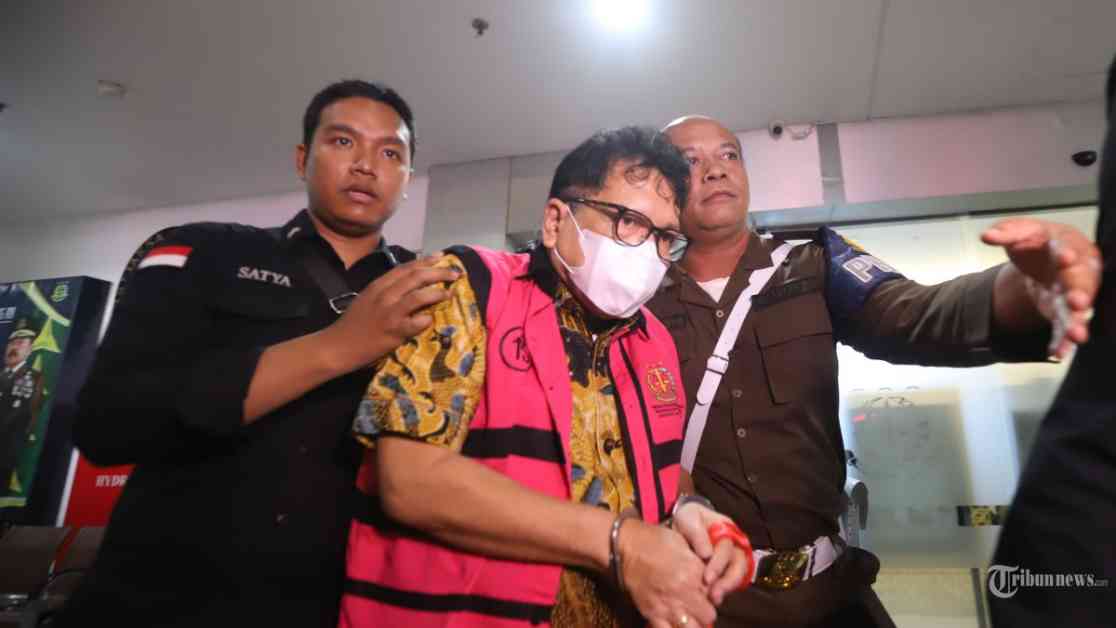Former MA Official Issues Warning Against Contacting Judges
In a recent court hearing at the Jakarta Corruption Court, Chief Judge Rosihan Juhriah Rangkuti delivered a firm cautionary statement, emphasizing that neither the defendants nor their families should attempt to contact the bench regarding the bribery case involving Ronald Tannur’s case processing.
The trial revolved around corruption charges and criminal conspiracies implicating three defendants: former Supreme Court officials Zarof Ricar, Lisa Rachmat, and Meirizka Widjaja. Despite separate trials for each defendant, the panel of judges remained consistent, comprising Rosihan Juhriah Rangkuti as the presiding judge, alongside Purwanto S Abdullah and Sigit Herman Binaji as associate judges at the Jakarta Corruption Court on Monday, February 10, 2025.
Before concluding the trial session, Judge Rosihan made a crucial announcement, firmly stating that the panel of judges would refrain from initiating contact with any defendants or their families. Additionally, he urged the defendants and their families to adhere to the same principle and avoid reaching out to the bench during the trial proceedings.
While Judge Rosihan did not explicitly disclose the reasons behind this directive, he assured that any attempt from external parties to communicate with the defendants or their families would not originate from the judicial panel.
During the court session, concerns were raised over the involvement of Lisa Rachmat, Ronald Tannur’s attorney, in navigating the legal proceedings at the Surabaya District Court. It was alleged that Lisa, in collaboration with Zarof Ricar, had planned to offer a substantial sum of Rp 5 billion to the three appellate judges tasked with deliberating Ronald Tannur’s case.
The prosecution highlighted that the intended purpose of the Rp 5 billion was to influence the appellate judges presided over by Judge Soesilo, who chaired the appellate panel during the proceedings. The ultimate goal was to sway the appellate judges’ decision in favor of upholding the Surabaya District Court’s ruling.
As the details of the case unfolded in the courtroom, the gravity of the charges underscored the importance of maintaining judicial integrity and upholding the principles of impartiality and fairness in legal proceedings. Judge Rosihan’s stern warning against unauthorized communications between the defendants and the judiciary underscored the imperative of preserving the sanctity of the legal process and safeguarding against external interference.
Implications of Judicial Integrity
Throughout the trial proceedings, the emphasis on judicial integrity and ethical standards remained paramount, underscoring the critical role of the judiciary in upholding the rule of law and ensuring justice is served. The cautionary measures implemented by Judge Rosihan aimed to prevent any undue influence or tampering with the legal process, reinforcing the judiciary’s commitment to impartiality and transparency. Legal Ramifications and Ethical Considerations
The intricate web of corruption charges and criminal conspiracies unraveled during the trial shed light on the ethical considerations and legal ramifications of attempting to influence judicial decisions through illicit means. The case served as a poignant reminder of the repercussions of breaching legal and ethical boundaries, highlighting the necessity of upholding the principles of justice, fairness, and integrity in all legal proceedings.
The intricate web of corruption charges and criminal conspiracies unraveled during the trial shed light on the ethical considerations and legal ramifications of attempting to influence judicial decisions through illicit means. The case served as a poignant reminder of the repercussions of breaching legal and ethical boundaries, highlighting the necessity of upholding the principles of justice, fairness, and integrity in all legal proceedings.
In conclusion, the admonition issued by Judge Rosihan underscored the judiciary’s unwavering commitment to upholding legal standards and preserving the integrity of the judicial system. By reiterating the importance of maintaining a firewall against external interference and unauthorized communications, the judiciary reaffirmed its dedication to fostering a fair, transparent, and impartial legal environment for all stakeholders involved in the legal process.






















